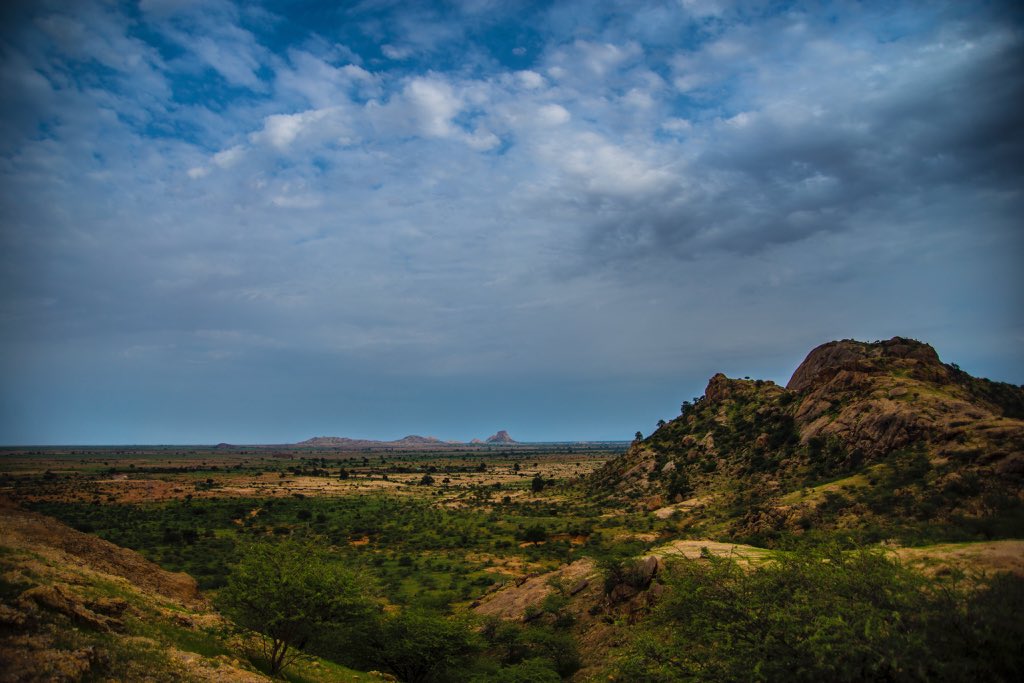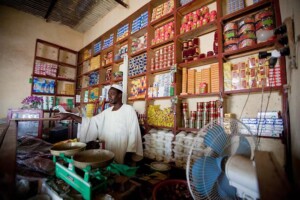RSF-allied ‘bandits’ plunder trucks on North Kordofan roads

View from the road between Um Rawaba and El Obeid in North Kordofan (File photo: Sari Omer)
The Rapid Support Forces (RSF) have reportedly lost control over an allied group of gunmen, known as El Shafshafa, fighting with them in North Kordofan. The El Shafshafa ‘bandits’ are wreaking havoc in southern North Kordofan, an informed source told Radio Dabanga yesterday.
On Sunday, they intercepted a convoy of 38 lorries loaded with livestock in the area of El Rahad, on the recently reopened road connecting El Obeid, capital of North Kordofan, with Tandalti, White Nile state. 80 sheep were stolen.
The convoy was travelling under the protection of an RSF force headed by high-ranking RSF commander Abushanab. The livestock was reportedly being exported to Saudi Arabia, under an agreement that stipulates that livestock traders pay SDG3.5 million to the RSF to be able to cross the border into White Nile state.
Two of the gunmen killed two villagers in El Maya Berti in Shargila yesterday.
The source reported that they also plundered a truck loaded with bean oil in the vicinity of Khortagat and sold the oil in El Rahad for SDG 37,000 per jar. They also seized a truck containing 30 tonnes of fava beans.
The RSF-allied group also stole livestock from lorries in Um Rawaba, according to the source. May 25, a dispute between RSF commanders in Um Rawaba reportedly halted 20 lorries carrying sheep to Port Sudan amid disputes over transit fees.
“El Shafshafa are selling the stolen items in El Rahad town under the noses of the RSF,” the source said. “What is happening on the El Rahad road is different from the Um Samima and Bara roads. On those roads, the RSF commanders are actually making an effort to combat El Shafshafa.”
In her briefing on Sudan to the Security Council in New York on May 22, UN Special Advisor on the Prevention of Genocide Alice Wairimu Nderitu said: “Parties to the conflict, de facto authorities, and armed groups continue to levy so-called ‘protection fees’ and arbitrary ‘taxes’ on the civilian population.”
Nicholas Stockton, former UN and Oxfam official, expressed his belief that the main driver of the ongoing war in Sudan is livestock exports to Saudi Arabia and other Gulf countries on May 20. He argues that by adopting ethical trade policies that exclude livestock exported from Sudan’s violent regions, Saudi Arabia and other Gulf states could “thereby remove the incentives that underlie the brutal land clearances.”











 and then
and then